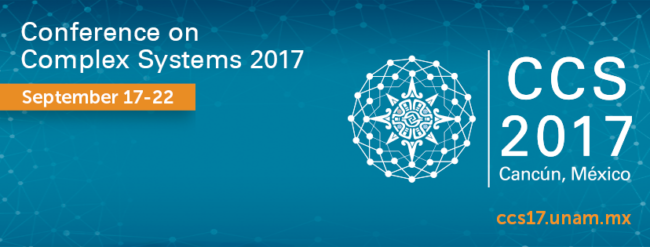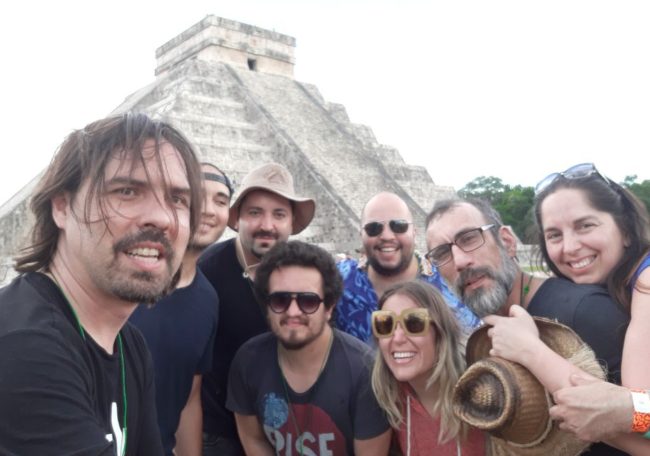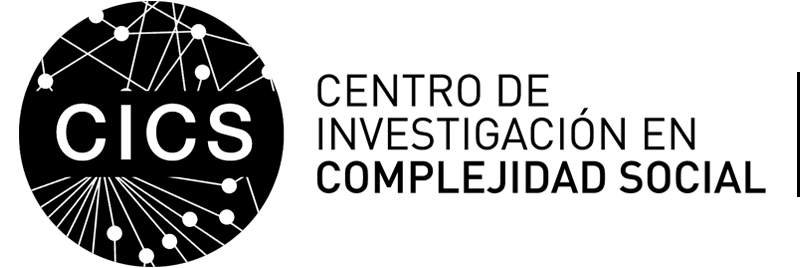[CICS on tour] DCCS in Complex System 2017 Conference
Monday, 2 October, 2017 | NEWSFour students of the Doctorate in Social Complexity Sciences (DCCS in spanish) presented their work at this event, held for the first time in Latin America. The Complex System Society with Universidad Autónoma de México (UNAM) organized and gathered in Cancun the protagonists of the scientific and technological innovation for the investigation of Complex Systems.

Víctor Landaeta, Cristián Candia, María Teresa Barbato and Jorge Castillo – students of different generations of the DCCS – were selected to travel to the Riviera Maya and present their work on Complex Systems. Through presentations, in the case of the first two, and posters, in the case of the last two, they were part of the Conference on Complex Systems 2017 (CCS). This event brings together researchers and students from diverse fields who explore methodologies to understand how elements interact to shape global properties while at the same time these properties limit elements.
The Complex System Society with the UNAM and the Mexican Ministry of Science organized the conference that was held for the first time in Latin America. In this historic version, Cristian Candia, part of the 2014 doctoral generation, presented his work on the universal social phenomenon of forgetting pieces of information. In “The Laws of forgetting”, the physical engineer applied a mathematical model to understand the process that affects the memory.
The physicist Víctor Landaeta, presented his research on the scientific bases that support the creation of the instrument of measurement of pro-social dispositions used in the project Fondef “Platform of digital games for the measurement of the dispositions to the cooperation for the school life”.

CCS 2017 Poster
With an innovative and disruptive perspective for this avant-garde conference, the mathematical civil engineer, Jorge Castillo, and the biologist, Maria Teresa Barbato, presented their posters. Castillo’s research, “On the evolution of Western Modern Art: Characterizing a paradigm shift in the production of painting artist”, corresponds to his doctoral thesis, in which he explores how the structure of a social network varies during its cultural evolution, and how this variation relates to the evolution of modern art.
Barbato, meanwhile, presented “Rational Moral Intuitions”, also part of her thesis and in which, despite not using methodological analysis of networks, inquiries into the long term mating to identify if there is a morality in that type of social interaction.
It is worth mentioning the participation of César Hidalgo, Director of MIT MediaLab and part of the CICS international network, as one of the Key Speakers of CCS 2017. There he explored how Collective Learning occurs in society and economy, at country and industry level.


